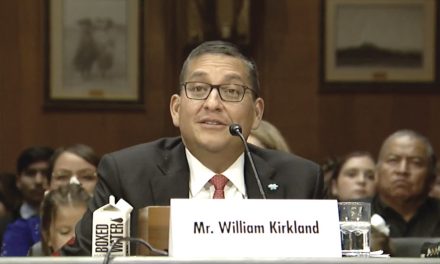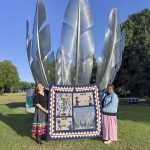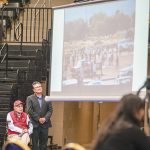
50 Years Ago: B&F OK’s raise for employees
The 1,200 or so employees of the Navajo Tribe received some good news this week: they would eventually be getting a raise. The Budget and Finance Committee, by a vote of 6-1, agreed to a 10 percent salary increase for all tribal employees, effective with the next budget approval. That means it would take effect in July 1969.
Employees had not seen a raise since 1964 and an attempt was made in January 1967 to get one approved but it failed. The tribe has commissioned a salary study by Public Administrative Services, a private firm, which looked at all of the salaries and compared them to what people in similar jobs were getting in the area.
To no one’s surprise, tribal employees were making between 60 and 70 percent of what employees working for the BIA were paid in similar jobs. With a 10 percent increase, most would still be making far less than the BIA salary and this without federal retirement benefits that government employees enjoyed.
The only dissenting vote came from Clifford Beck, from Pinon, Arizona, who argued that the tribe could not afford salary increases and urged that it be reduced to 3 percent. But budget members realized that elections would be coming up in two years and felt the need to make employees happy so they would not take their anger out in the voting booth.
There were rumors going around that the winter of 1968-69 would be worse than the one that the tribe suffered the previous winter, and Roland Billie, the Navajo Times’ sole reporter, wrote a rare editorial trying to ease people’s minds. The previous winter was the worst in anyone’s memory with more than a dozen human deaths as well as thousands of sheep, cattle and horses. It resulted in many Navajo families being stranded in their homes for as long as six weeks and a total disruption of life on the reservation as schools had to close and government offices found it hard to have enough people to show up for work.
Billie’s message to the Navajo people the week before Christmas was not to worry because all of the rumors about a bad winter were just that – rumors – and there was no evidence that this was going to happen. He agreed that the Navajo people should remember the last winter and make sure they had enough food and supplies on hand to deal with a major snowstorm.
“At least 60,000 of the 120,000 Navajos were in some form of distress last year,” he said, adding that the lives of a million or so head of livestock were also put in danger. But he pointed out that it was also a time of life, citing the efforts of Ganado man who struggled for five miles to reach a phone to get a helicopter to come and pick up his daughter-in-law who was about to have a baby.
Through his efforts, the helicopter arrived in time.
As 1968 ended, we should make note of one person who made a major contribution to the Navajo Times during the previous year – Daniel Peaches. Peaches, who was from Kayenta, was one of a handful of Navajos who wrote numerous letters to the Times throughout the year, a practice he would continue for many years to come.
Peaches showed a concern for a wide range of subjects and did not hesitate to give his opinion, no matter how unpopular it would be to some readers. Peaches would go on to a career in the Navajo government, serving as an adviser to Peter MacDonald and later serving in the Navajo Tribal Council. But in 1968, he was known through his letters.
Dick Hardwick, the paper’s managing editor, would say he deeply appreciated Peaches and the others who wrote letters because it stirred other people to write and this was good for circulation. In the final issue of the year, one letter writer even wrote in to complain that Peaches used too many big words. “Who is this Daniel Peaches,” he writes, “who scribbles away some mumble jumble about politics and the sort. “It seems he writes most of his words out of the dictionary or is he that educated, maybe with a political science degree?” the writer said.
Hardwick said he appreciated this writer, like Peaches, who had a clear understanding of what they wanted to say and the vocabulary to say it. He said he often had to spend hours going over the letters sent by other writers, repairing their grammar and trying to figure out what they were trying to say. Not so with Peaches, whose letters were published in the paper almost word for word as he had sent it in.
To read the full article, pick up your copy of the Navajo Times at your nearest newsstand Thursday mornings!
Are you a digital subscriber? Read the most recent three weeks of stories by logging in to your online account.








 Highway 264,
Highway 264, I-40, WB @ Winslow
I-40, WB @ Winslow